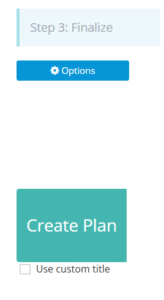Organizations move files from one Google Drive account to another for various reasons. For instance, consolidating data across accounts, managing organizational transitions, or simply backing up content. While Google Drive offers powerful collaboration features, it doesn’t provide a straightforward built-in option to move entire folders or large sets of files between accounts, not when you have a bulk migration to perform.
In this blog post, we’ll talk about the common reasons organizations transfer data between Google Drives, review different methods available – both manual and automated – and walk you through a step-by-step guide using Cloudsfer, a tool designed to simplify Google Drive cloud-to-cloud migrations.
Handling Large File Transfers Between Google Drive Accounts
Moving large files or entire folders between Google Drive accounts can introduce challenges like slow transfer speeds, file size limits, and quota restrictions. To manage this effectively, consider strategies such as splitting data into smaller batches, transferring during off-peak hours, and monitoring for any skipped or failed files. A stable internet connection and maintaining folder structure can also help preserve data integrity during the move.
Why Move Files Between Google Drive Accounts?
Here are some common scenarios:
- You’re moving from a Google Drive personal account to a Business Google Workspace account
- An employee is leaving the company, and you need to transfer their Drive contents
- You’re managing shared files between departments or collaborators
- You want to back up important documents to a second account
Common Methods for Transferring Files Between Google Drive
1. Manual Sharing and Copying
- Share the file/folder with the second account
- Log in to the second account, make a copy, and move it to “My Drive.”
Limitations:
- Doesn’t retain metadata like created/modified time
- Loses folder structure when copying files
- Time-consuming for large migrations
2. Google Takeout
- Export your Drive files as a downloadable archive
- Upload the archive into the second account
Limitations:
- Files need to be downloaded and re-uploaded manually
- The folder structure may not transfer perfectly
- No support for incremental changes
3. Using a Third-Party Tool like Cloudsfer
Cloudsfer is a cloud-to-cloud migration tool that enables organizations to transfer entire folders from one Google Drive account to another, while retaining metadata and hierarchy.
Step-by-Step: How to Use Cloudsfer for Google Drive to Google Drive Migration
Here’s how to transfer files or folders using Cloudsfer:
-
Step 1: Sign in to Cloudsfer
Visit Cloudsfer.com and sign in.
-
Step 2: Select Google Drive as the ‘Source’
Once logged in, choose Google Drive as your source system. You’ll be prompted to authenticate your Google account and select what you want to migrate.
-
Step 3: Select the Target Google Drive
Choose another Google Drive account as the destination and authorize access.
-
Step 4: Choose Files or Folders to Transfer
You can migrate entire folders or select specific files if needed. The folder hierarchy will be maintained in the target Drive.
-
Step 5: Customize your migration
Set the rules to handle customized migration by file size, file type, dates, versions, and security mapping (user/groups and permissions), etc, so your access is preserved.
-
Step 6: Start the Migration
Click ‘Create Plan’ to begin, and a green progress bar will pop up.
-
Step 7: Configure Migration Settings (Optional)
- Schedule the migration for off-hours
- Retain metadata like timestamps
- Enable filters (e.g., only move files modified after a specific date)
Lastly, click ‘Run now’. To view the progress for migration, click ‘Migration Reports Summary’ (on top left)
Benefits of Using Cloudsfer
- No need to download or re-upload files
- Preserves folder structure and file timestamps
- Option to migrate multiple users at once (for admins)
- Provides 2FA, 256-bit encryption for data transfer, and compliance with Google’s CASA security standard.
Manual vs Google Takeout vs Cloudsfer
Comparison: Manual vs Google Takeout vs Cloudsfer
| Feature | Manual (Sharing & Copying) | Google Takeout | Cloudsfer ✅ |
| Preserves folder structure | ❌ | ❌ | ✅ |
| Retains metadata (timestamps, permissions) | ❌ | ❌ | ✅ |
| Automated process | ❌ | ❌ | ✅ |
| Scalable for large migrations | ❌ | ❌ | ✅ |
| Requires manual download & upload | ✅ | ✅ | ❌ |
| Filtering by size, type, or date | ❌ | ❌ | ✅ |
| Suitable for organizations | ❌ | ❌ | ✅ |
Google Drive for business migration
If you’re a growing business or managing multiple Google accounts, manual methods just don’t scale. Cloudsfer makes it easy to migrate users, retain folder structure, and keep permissions intact, all without delays. It is built for organizations that need a safe and easy way to move data between accounts.
Final Thoughts
While it’s possible to manually transfer files between Google Drive accounts, the process can become tedious and error-prone, especially when you are dealing with large or complex folders. Tools like Cloudsfer provide a more efficient solution for organizations needing to migrate data between accounts, supporting over 20 cloud platforms, including Google Drive, Dropbox Business, and more.








